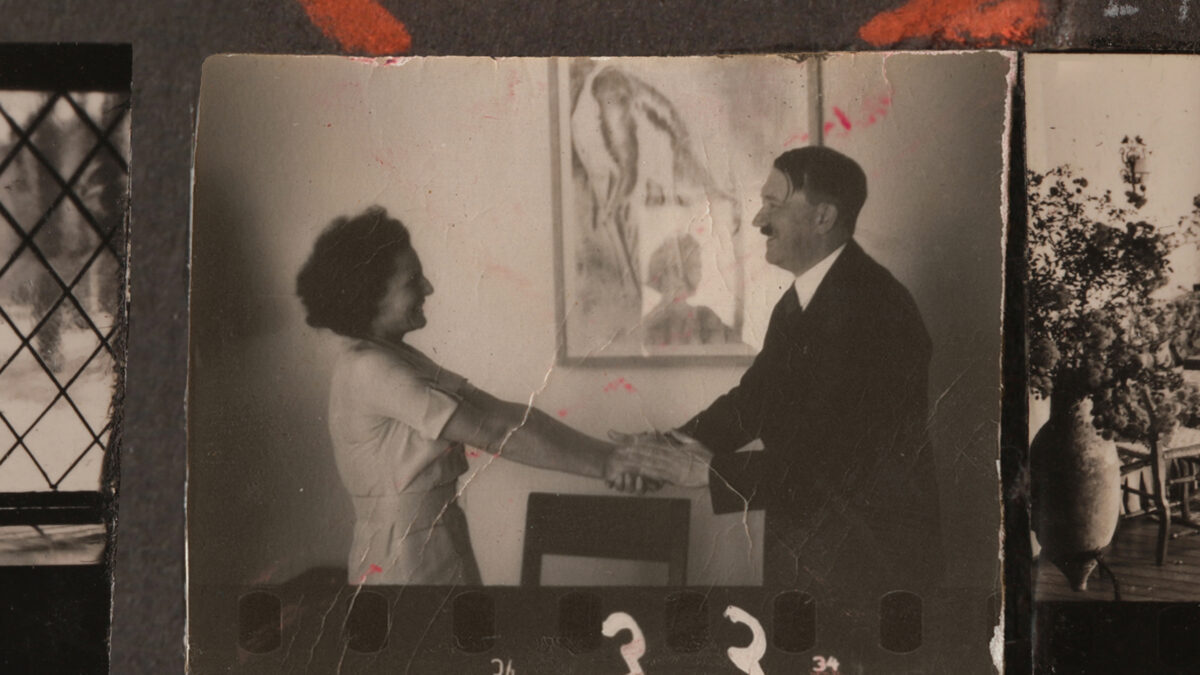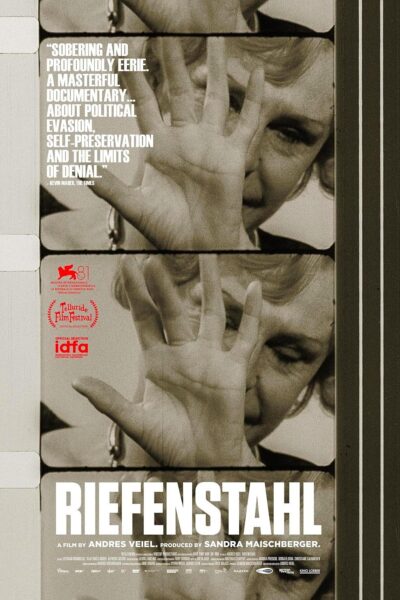"A slice of dark history that speaks (eloquently, implicitly) to present-day tensions."
— Xan Brooks, The Guardian
"Sobering and profoundly eerie. A masterful documentary… about political evasion, self-preservation and the limits of denial."
— Kevin Maher, The Times
"Coolly damning... shrewdly edited. A welcome addition to the historically grounded rebukes to Riefenstahl and her apologists."
— Manohla Dargis, The New York Times
"If there’s still anyone uncritically repeating Riefenstahl’s narrative of naïveté, they’ll find it hard to sustain by the end credits."
— Eli Friedberg, Slant Magazine
"Mr. Veiel has performed a remarkable feat of archival spelunking, piecing together a documentary portrait that is measured in tone and damning in effect."
— Zachary Barnes, Wall Street Journal
"This documentary wants to get to the truth. But even if you’ve already made your own mind up -- I had! -- it’s still a mesmerising portrait of the kind of person who cannot give up on the lies they’ve told themselves."
— Deborah Ross, The Spectator
"A valuable and arresting… meditation on Riefenstahl — her life, her art, the question of her guilt. And one of the things it does is to remind you of what a singularly provocative and insidious and mysterious figure she was."
— Owen Gleiberman, Variety







